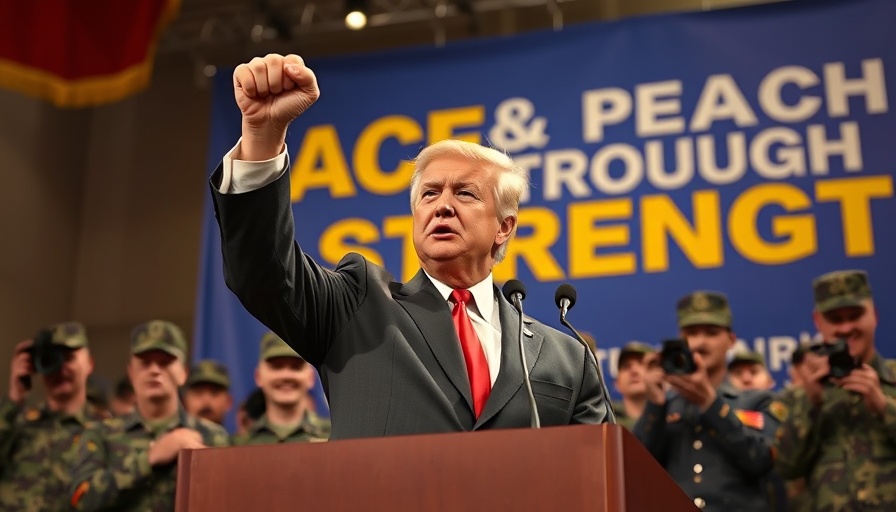
Trump's Gulf Tour: A Shift Towards Dollar Diplomacy
U.S. President Donald Trump completed a noteworthy three-day tour of Saudi Arabia, Qatar, and the United Arab Emirates, outlining a bold dollar-driven agenda aimed at establishing peace in the Middle East and South Asia. His approach centers around an 'America-first' narrative, which has resonated well with key Gulf allies. Analysts, however, question the long-term feasibility of his plans.
Breaking Down the Sanctions
One of the tour's significant decisions included the lifting of sanctions against Syria’s new administration. This move, influenced heavily by Turkish President Recep Tayyip Erdogan and Saudi Crown Prince Mohammed bin Salman, may further complicate the geopolitical landscape, particularly with Israel firmly opposing this stance. Trump's administrative style diverges from the interventions typical of prior U.S. leadership, reflecting a more transactional approach to international relations.
Aiming for Stability Through Partnerships
Trump's vision for the region emphasizes collaboration among key players, hoping to stabilize factions by leveraging their existing relationships with Washington. His plans involve Iran—conditional on its agreement to a nuclear deal—and a desire for India and Pakistan to resolve their long-standing disputes with U.S. mediation. This pivot towards partnership contrasts sharply with the neoconservative policies associated with endless military engagements of the past.
Regional Impact and Reactions
Responses to Trump's visit reveal a mix of optimism among Gulf nations and skepticism from other quarters. The positive reception from nations like the UAE and Saudi Arabia stems from their alignment with Trump's economic perspectives, potentially facilitating further cooperation. Nonetheless, analysts like Giorgio Cafiero of Gulf State Analytics warn that merely shifting policies on paper may not yield tangible results as complexities in Middle Eastern geopolitics complicate peace initiatives.
Challenges Ahead for the America-First Policy
Trump's America-first policy raises questions regarding its effectiveness in promoting lasting peace. While the intents may seem noble, challenges such as entrenched rivalries and historically complex relationships persist. The idea of a coordinated effort to broker peace and stability may provide an engaging narrative, yet the execution remains the real test for Trump’s administration.
The Future of U.S. Relations in the Gulf
As Trump looks to reshape the landscape of Middle Eastern diplomacy, all eyes will be on the developments that follow his Gulf tour. Will the economic incentives proposed truly foster peace between rival nations? How will this new policy influence U.S. standing among its long-time allies and adversaries? Navigating these waters requires not just bold visions, but practical solutions that can withstand the intricacies of international diplomacy.
 Add Row
Add Row  Add
Add 




Write A Comment